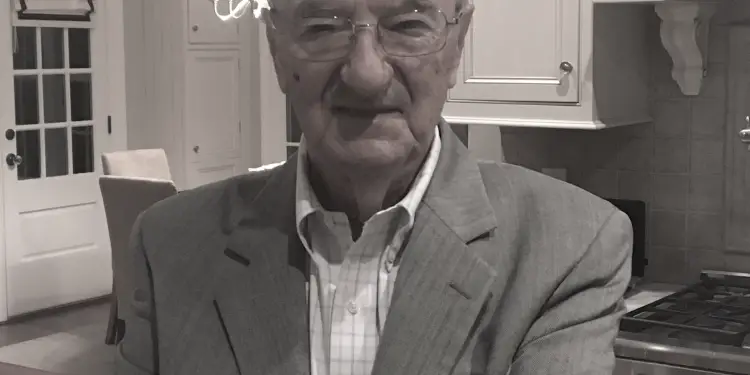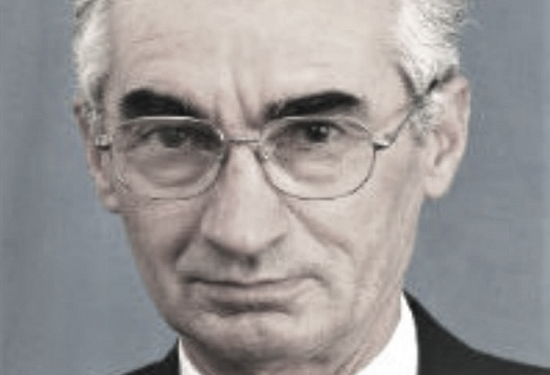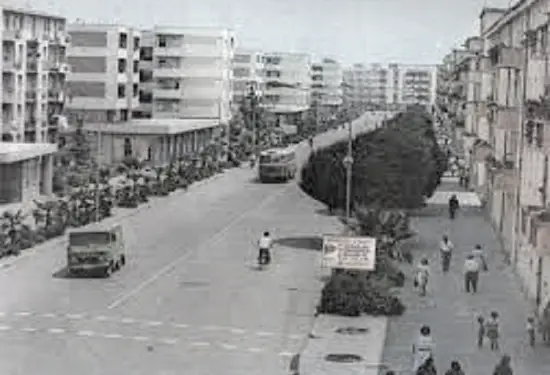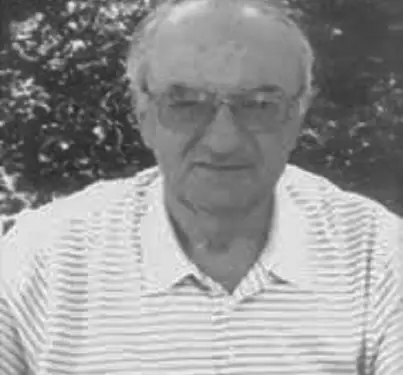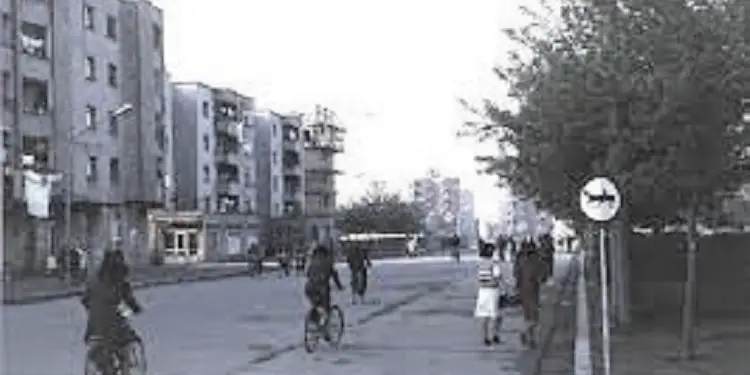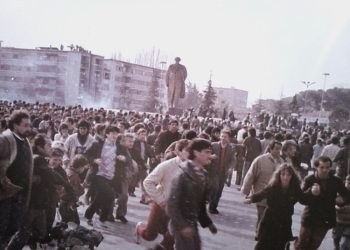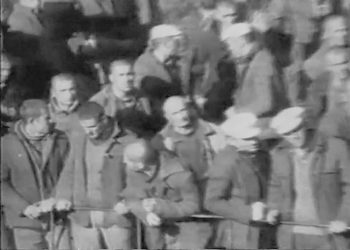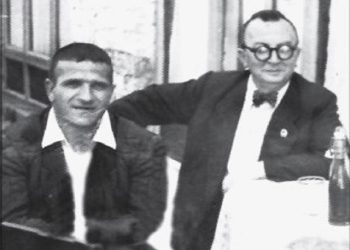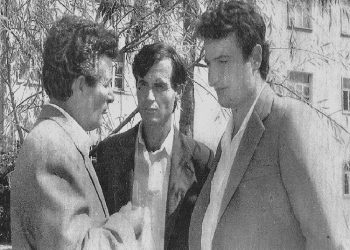By Eugene Merlika
– SHKODRA LIQUID –
Memorie.al / “I found old Shkodra even more tired, with a lost voice and extinguished hopes. Shkodra seemed to be living the agony of its extinction, of an end that leaves behind only memories for those who loved it and love it…”!
This part, from writing by the respected professor Sami Repishti, evokes sadness and anger, surprise and pain at the same time. It seems as if this writing speaks of a distant era, a moment immersed in the depths of time, when hordes of barbarian tribes turned Roman Europe into smoke, destroying an aging civilization that had lost the ability to defend itself and fight.
A city without hope is like a man without hope, a being who loses his smile, the liveliness of his eyes, who wanders like a shapeless skeleton in an indefinite space that evokes sadness. “Hope is the last to die”, says an Italian proverb, but in our case, in the case of Shkodra, death seems to have plagued hopes before. You feel pain when you think that a city’s hopes have been extinguished, even more so when the hopes of an entire people were tied to that city.
In long nights of dark times, that city, with its humor, kept alive the souls of Albanians, whose history and fate reserved few, very few beautiful moments in which to dream. One of these moments was January 14, 1990, when the first great demonstration of Shkodra heralded the imminent dawn of a time without dictatorship.
Today, after thirteen years, a negligible amount of time for the age of the most prominent city in the history of the Albanian country, at the beginning of a centenary that promises peace and harmony, instead of the wars and hatred inherited from its predecessors, Shkodra it languishes. It, the city of history and legend, of Albanianism and culture, of cheerful and open people, is today dull and waiting.
It seems that the new wind of globalization has passed them by and does not want to include them. This is evidenced by the broken roads and sidewalks, puddles of water when it rains, the lack of electricity, the incurable gangrene of “modern” Albania, the crowds of unemployed young people roaming its streets, the coldness and lack of trust in the State, politics of their representatives.
Shkodra feels abandoned, left aside, forgotten even though it was used to being the head of the country in all the great tables of Albanian history. She had earned this honor thanks to the dedication of her sons to the issue of the Nation and the formation of its consciousness and their merits, in the culture of this people.
Anyone who knows even a little about the past of this city, its greatness and splendor in different times of history as the center of kingdoms, pashaliks and vilayets that stretched to the heart of the Balkans, the window through which even a little Western civilization entered, is surprised how this period, which brought democracy after the overthrow of the last communist dictatorship in Europe, which was so spared.
Surprise quickly turns into anger and this increases when you see the differences between Shkodra and the southern coast of Albania or between it and the capital. It is true that in this economic system that we are trying to establish, it is personal initiative that must precede economic development, it is what must create wealth, a part of which is administered by the State that must think the same for everyone its citizens.
In our country, the current State, i.e. the Socialist Government, has acted on the basis of an inherited “class” mentality, pouring money into those parts of the country, to which it was indebted for the power they had given it in that evil year of 1997. The anger exceeds the usual proportions, when it is clearly understood that Shkodra is paying the consequences of its democratic spirit, of its love for freedom, of its well-known anti-communism.
The people of Shkodra, who during half a century of official communism, who were less communistized than others, who resisted the dictatorship and its laws more than others, do not deserve such treatment. This fact should concern all those who love democratic Albania, a free and developed country, because today’s agony of Shkodra is a reflection of that of Albania, which cannot be equated only with the images generously offered by Albanian TV, for convincing us that everything is going well, because we meet with the various representatives of Europe or the USA, that we are supposedly fighting the traffickers and that we participated in the coalition against Saddam.
“Don’t kill my Shkodra!” prays loudly, from the bottom of his hurt heart, Mr. Repishti. It is not only the hearts of the Shkodrans that are hurt; they should also be felt by all Albanians who are sympathetic to the progress of their country. Moreover, that call should affect today’s governors, but also the representatives of the institutions of Europe, which we want to enter. Or quietly and do they think that anti-communism should have a price to pay even today?
Shkodra today reminds me of Berlin, surrounded by walls and barbed wire, forty years ago. It was that outpost of the Free World in the body of the “Evil Empire”, and as such condemned by the latter to a forced isolation from that World. Then a young and courageous President of that World, in front of half a million Berliners, claimed that he was proud to say: “I am a Berlin citizen”.
Today, it seems appropriate to say: “We are all from Shkodra”. Memorie.al
July 2003




